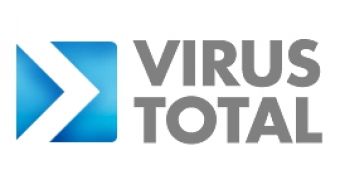The name of the popular file analysis service VirusTotal is being abused by cyber-crooks to infect users with scareware. A recent forum spam campaign tries to trick people into visiting a malicious website hosted at virus-total.in.
Security researchers from Sophos reported a spam run promoting the rogue virus-total domain, as a private message on a forum. The message employs scare tactics in order to frighten users into visiting the scareware-pushing website.
"There are viruses’ activities from your computer! Highly recommend you to scan your computer for malicious and potentially unwanted software. If you do not follow this, I will have to make a complaint to your Internet Service Provider with attached log file (your IP address, etc.). If you want to find a report about your computer’s security and solve every problem with it, please click here: [malicious url] This is an online service that you can use for free spyware removal," the message reads.
This attack clearly targets VirusTotal.com, a popular free service which allows users to scan suspicious files with over 40 antivirus engines and other tools. Julio Canto, VirusTotal's project manager, issued an alert about the rogue virus-total.in website via Twitter.
The site displays bogus security warnings and fake antivirus scans to unsuspecting visitors, tricking them into installing a scareware program called SecurityTool. Rogue security programs such as these are commonly used by cyber-criminals to charge money for useless licenses and steal credit card details.
"An unfortunate side effect of a scam like this is that the real VirusTotal could start to receive emails from irate victims of the fake site claiming they’ve 'infected my PC' – fingers crossed it doesn’t get to that stage. Remember: the REAL domain for VirusTotal is Virustotal.com. Don’t fall for this scam!" Sunbelt's Chris Boyd advises.
Another unusual aspect of this attack is the threat of filing a complaint with a user's ISP about the virus activity alleged in the spam message. This statement comes at a time when ISPs have announced initiatives to identify compromised computers on their networks and take proactive measures to clean them.

 14 DAY TRIAL //
14 DAY TRIAL //